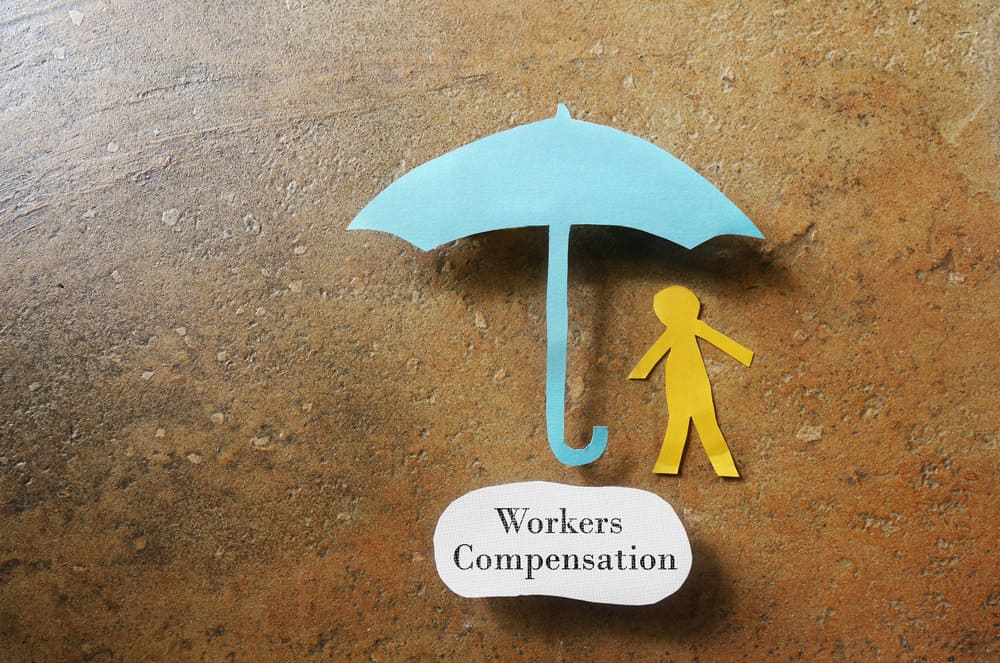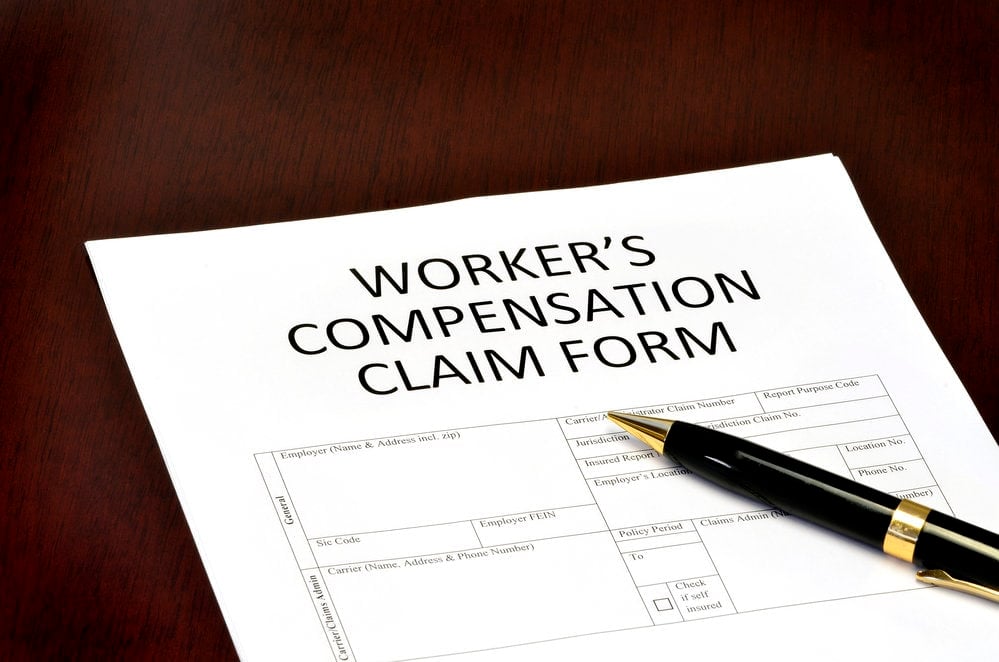Navigating the complexities of workers’ compensation can be challenging, especially when understanding your rights after being terminated from a job. Can you still collect workers’ compensation benefits after being fired? The answer is not always straightforward, as various factors can impact your eligibility for benefits. This article explores the nuances of workers’ compensation after termination, providing insights into the legal and medical aspects that can come into play.
Workers’ compensation exists to provide financial support and medical care for employees who suffer from work-related injuries or illnesses. When it comes to termination, it’s crucial to understand the circumstances surrounding your firing and any relationship it may have to your workers’ compensation claim. In some cases, filing a claim after being fired can be challenging, while in others, termination may not affect your ability to collect benefits. Knowing the ins and outs of the system is essential to ensuring that you receive the support and care you deserve.
To help you understand and potentially claim workers’ compensation benefits after being fired, we’ll be delving into specific scenarios and exploring frequently asked questions related to this crucial topic.
Key Takeaways
- Workers’ compensation provides financial and medical assistance for work-related injuries or illnesses.
- Understanding the circumstances around your termination can impact your eligibility for workers’ compensation benefits.
- Familiarizing yourself with the legal and medical aspects of your workers’ compensation claim is crucial in securing appropriate support and care.
Understanding Workers’ Compensation
What is Workers’ Compensation
Workers’ compensation is a form of insurance that provides medical and wage benefits to employees injured or ill due to their jobs. It is designed to protect both employees and employers, as the employees receive compensation for work-related injuries without having to prove fault, and employers are protected from potential lawsuits by injured workers.
How Does Workers’ Compensation Work
When you experience a work-related injury, you must report the incident to your employer within a specific time frame. Your employer then files a claim with their workers’ compensation insurance carrier. Once the claim is accepted, you will receive benefits according to the specific rules and regulations of your state’s workers’ compensation system. These benefits may include:
- Medical care for your injury
- Temporary disability payments while you recover
- Permanent disability payments if your injury results in lasting impairment
- Vocational rehabilitation, if necessary, to help you return to work or find a new job
Types of Compensation
Several types of compensation are available through workers’ compensation, depending on the severity of your injury and its lasting effects. Some common types of compensation include:
- Medical benefits: These cover the cost of your medical treatment for your work-related injury or illness. Depending on your state, there may be limits for certain types of treatment or the duration of coverage.
- Temporary disability benefits: If your injury prevents you from working for a limited period, you may receive partial wage replacement while you recover. The amount and duration of these benefits may vary depending on your state’s guidelines.
- Permanent disability benefits: If your injury leads to permanent impairment or disability that affects your ability to work, you could be entitled to long-term wage replacement or a lump-sum payment. Calculating these benefits often considers factors like your age and the severity of your disability.
- Vocational rehabilitation: Sometimes, your work-related injury may require changing your field or accepting a different position within your company. Vocational rehabilitation benefits can help you obtain the necessary education or training to adapt to a new job or career.
By understanding workers’ compensation and its various components, you can better navigate the process and ensure you receive the benefits you’re entitled to for your work-related injury or illness.
Firing and Workers’ Compensation
Can You Be Fired While on Workers’ Comp
It’s important to understand that being on workers’ compensation doesn’t make you immune to being fired. In some cases, your employer might find a legitimate reason for terminating your employment while you are still on workers’ comp, such as company-wide downsizing or serious misconduct. However, it is illegal for an employer to fire you solely because you filed a workers’ comp claim or are receiving benefits.
Implications of Being Fired After a Work Injury
If you’ve been fired after suffering a workplace injury, there are a few implications to be aware of:
- Loss of job security: During your recovery, you may not have the same protection as you would have if you were still employed, especially if your injury prevents you from immediately finding new work.
- Potential denial of workers’ comp benefits: In some states like California, your employer can use the “post-termination defense” to deny your claim if you filed it after being fired. This defense protects employers from facing false claims by recently terminated employees.
- Additional obstacles: Proving that you qualify for workers’ comp benefits after being terminated might become more challenging, as your employer could argue that your injury isn’t work-related or occurred after your employment ended.
Wrongful Termination and Workers’ Compensation
If you believe that your termination was unlawful and directly related to your workers’ comp claim, you have the right to pursue a wrongful termination lawsuit against your employer. In such situations, gathering evidence, consulting with an attorney, and filing your claim as soon as possible is crucial.
Some key takeaways to remember:
- It’s possible to be fired while on workers’ comp, but your employer cannot terminate your employment solely because of your claim.
- Being fired after a work injury can lead to loss of job security, potential denial of benefits, and additional challenges to prove you qualify for workers’ comp.
- If you suspect wrongful termination related to your workers’ comp claim, seek legal advice and consider filing a lawsuit against your employer.
Legal Aspects of Workers’ Compensation After Termination
Filing a Workers’ Compensation Claim After Termination
Collecting workers’ compensation benefits for a work-related injury or illness is possible, even if you didn’t file your claim until after termination, layoff, or voluntarily quitting the job responsible for the medical condition. However, you may face extra hurdles to prove you qualify for benefits. Insurance companies are usually suspicious of claims filed only after a worker leaves work. In California, for example, employers can deny workers’ compensation claims filed after the employee’s termination, known as the “post-termination defense.”
Retaliation and Legal Protection
You should be aware that it is unlawful for employers to retaliate against an employee for filing a workers’ compensation claim. Legal protections are in place to prevent employers from mistreating or disadvantaging an employee for asserting their workers’ compensation rights.
- Be cautious: Document and report instances of retaliation.
- Know your rights: Familiarize yourself with relevant labor laws.
- Speak up: Communicate with your employer if you experience retaliation.
Legal Aid and Representation
If you’re facing challenges in collecting workers’ compensation after termination, consider seeking the help of a workers’ compensation lawyer. An experienced attorney can guide you through the filing process, help you gather necessary evidence, and represent you in legal proceedings:
- Find an attorney: Look for workers’ compensation lawyers in your industry.
- Be prepared: Present documentation of your work-related injury or illness and evidence of retaliation (if applicable).
- Communicate openly: Maintain a line of communication with your attorney to ensure your case is handled efficiently.
In conclusion, receiving workers’ compensation benefits after termination may be challenging, but it is not impossible. Understanding the legal aspects, documenting evidence, and working with an experienced attorney can increase your chances of a successful claim.
Medical Aspects in Workers’ Compensation After Termination
Reporting and Treatment of Injuries
If you’ve been injured at work and later terminated, you must report your injury to your employer as soon as possible. You can seek medical treatment for your injury, even after termination. Keep in mind that:
- It’s crucial to promptly inform your employer about the injury for the workers’ compensation process.
- You may choose a doctor to provide medical treatment, but follow any guidelines set by your workers’ compensation insurance.
- Maintain open communication with your employer and medical provider throughout the treatment process.
Handling Medical Records and Bills
Managing medical records and bills is essential for your workers’ compensation claim after termination. Here are some tips:
- Record all medical documents, including diagnosis, treatment plans, prescriptions, and referrals.
- Ensure your medical provider sends the bills to the workers’ compensation insurance carrier.
- Regularly review your medical bills for accuracy and address discrepancies with your provider or insurance carrier.
- Remember to update your former employer about your treatment progress and medical expenses.
Returning to Work with Restrictions
After receiving medical treatment, your doctor might give you restrictions upon returning to work. These may include limited hours or modified duties. Consider the following steps:
- Share your doctor’s restrictions with your former employer and discuss possible accommodations.
- Be open to exploring alternative job roles or modifications to your previous role that align with your restrictions.
- Maintaining a healthy dialogue with your former employer can open doors for re-employment and complying with workers’ compensation laws.
- Continuously update your medical provider and employer about your work situation, which may impact your ongoing workers’ compensation benefits.
By proactively reporting your injury, handling your medical records and bills, and addressing your work restrictions, you can effectively navigate the medical aspects of workers’ compensation after termination.
Special Cases in Workers’ Compensation After Termination
Addressing Post-Termination Claims
You might face some challenges if you’ve been fired or laid off and want to file a workers’ compensation claim. Specifically, employers may use the “post-termination defense,” which protects them from false claims by recently terminated employees. However, there are exceptions to this defense. For instance, if you can provide medical records as evidence of your injury before termination or prove that your employer knew about your injury, you may still be able to pursue your claim.
Understanding Cumulative Trauma and Psychiatric Injuries
Cumulative trauma and psychiatric injuries are special categories of work-related injuries that might not have obvious symptoms or immediate consequences. Consequently, many employees don’t realize the extent of these issues until after termination. Cumulative trauma refers to injuries resulting from repetitive stress or strains, while psychiatric injuries may arise due to factors like harassment, bullying, or a stressful working environment.
When seeking workers’ compensation for these types of injuries, it’s crucial to provide thorough documentation, including:
- Medical records showing a history of treatment or evaluation for the condition
- Evidence of a connection between workplace events and your injury
- Testimony from coworkers, experts, or other witnesses who can support your claim
Navigating Californian Workers’ Compensation Laws
In California, the rules for post-termination workers’ compensation claims can be more complex than in other states. Employers in California can deny your claim if it was filed after you were fired, thanks to the post-termination defense. However, there are ways to challenge this defense and make a successful claim:
- Demonstrating that you reported the injury or requested treatment before your termination
- Showing that your employer knew or should have known about your injury before terminating your employment
- Providing medical records or other documentation to substantiate your injury and its relation to your workplace
Remember, while seeking workers’ compensation after termination can be challenging, understanding the special cases and exceptions available to you might increase your chances of a successful outcome.
Understanding and Claiming Benefits
This section will discuss how to qualify for disability benefits, claim lost wages, and address reinstatement and employment contracts when dealing with workers’ comp after being fired.
Qualifying for Disability Benefits
To qualify for disability benefits, you must have sustained a work-related injury or illness that resulted in temporary or permanent disability. It is crucial to report your injury to your employer immediately. Even if you have been fired, you may still be eligible for these benefits:
- Temporary disability benefits: These cover some of your lost wages while you cannot work due to your injury or illness.
- Permanent disability benefits: If your injury results in a lasting impairment, you may be eligible for long-term benefits based on the severity and duration of your disability.
Claiming Lost Wages
Lost wages are an essential part of workers’ compensation benefits. Even after being fired, you may be able to claim lost wages, depending on the circumstances surrounding your termination. To maximize your chances of claiming lost wages, follow these steps:
- File a workers’ comp claim promptly.
- Provide thorough documentation of your injury, including medical records, witness statements, and details about the incident.
- Consult with an experienced workers’ compensation attorney who can guide you through the process and advocate on your behalf.
Reinstatement and Employment Contract
If you believe your termination was related to your workers’ compensation claim, you may have grounds for reinstatement. This could involve returning to your former position or a comparable role within the company. Additionally, familiarize yourself with any provisions in your employment contract that cover workers’ compensation and job reinstatement.
Key Takeaways:
- Understand the types of disability benefits and eligibility requirements.
- Maintain clear communication with your employer and keep thorough documentation.
- Consult with a workers’ compensation attorney to navigate the legal aspects of your claim.
- Review your employment contract to understand your rights regarding reinstatement.
Conclusion
In summary, collecting workers’ comp in California after being fired is possible. However, there are certain conditions and challenges to overcome in proving your eligibility for benefits. Employers can use the “post-termination defense” to deny workers’ comp claims filed after termination to protect themselves from false claims made by recently fired employees.
To improve your chances of successfully receiving workers’ comp after being fired:
- Report any work-related injury or illness as soon as possible, preferably before termination.
- If you suspect you’ve been fired solely for receiving workers’ comp benefits, seek legal assistance immediately.
- Be prepared to face extra hurdles in proving your qualifications for benefits, especially if the claim is filed after termination.
Remember that your workers’ compensation benefits rights do not disappear simply because you’ve been fired. However, proactively addressing work-related injuries or illnesses before your termination will help strengthen your claim and improve the likelihood of receiving the benefits you deserve.
Frequently Asked Questions
What happens if I get fired while on workers’ comp?
If you’re fired while receiving workers’ compensation benefits, your benefits may continue depending on the circumstances of your dismissal. Your temporary or permanent disability benefits and medical treatment should not be affected by your termination. However, if you believe you were fired in retaliation for filing a workers’ comp claim, you may consult an attorney for legal advice regarding wrongful termination.
Can you file workers’ comp after quitting?
Yes, you can file a workers’ compensation claim after quitting your job, although it may be more challenging to prove that your injury or illness is work-related. Providing proper documentation to support your claim is essential, including medical records, incident reports, and witness statements. Filing your claim as soon as possible after the injury occurs can increase your chances of success.
Is it legal to terminate an employee on light duty?
Terminating an employee on light duty due to a work-related injury can be legally complex. If the reason for termination is unrelated to the injury or claim, such as misconduct or the closure of the business, it may be legal. However, if there’s evidence that the termination is due to the workers’ compensation claim, this could be considered illegal retaliation.
How long does an employer have to hold a job for someone on workers’ compensation?
There is no specific timeframe for how long an employer must hold a job for an employee receiving workers’ compensation benefits. The length of job protection may vary depending on state laws, company policies, and the nature of the injury. Communicating with your employer about your expected recovery timeline and discussing any possible accommodations is essential.
Can you get fired for being on workers’ comp?
An employer cannot legally fire an employee solely for filing a workers’ comp claim or being on workers’ compensation. This would be considered retaliation and is against the law. However, an employer can terminate an employee for other legitimate reasons, such as poor job performance, misconduct, or if the business is experiencing a downturn.
What’s the process for workers’ compensation termination of employment?
The process for terminating an employee on workers’ compensation can vary depending on the reason for termination and state laws. An employer must ensure that the termination is not due to the employee’s claim or injury, which would be considered retaliation. If an employer has a valid reason for terminating the employee, they should document it and provide clear communication to the employee about the reason for their dismissal. In such cases, it’s wise for the employer and employee to consult with legal counsel to ensure they are following the law and protecting their rights.




